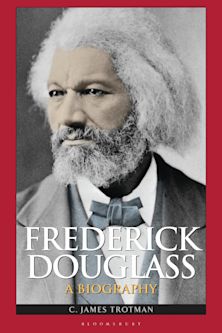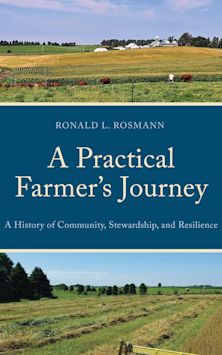- Home
- ACADEMIC
- History
- United States History
- Wages of Independence
Wages of Independence
Capitalism in the Early American Republic
Paul A. Gilje (Anthology Editor) , Jeanne Boydston (Contributor) , Christopher Clark (Contributor) , Douglas R. Egerton (Contributor) , Cathy D. Matson (Contributor) , Jonathan Prude (Contributor) , Richard Stott (Contributor) , Gordon S. Wood (Contributor)
- Textbook
Wages of Independence
Capitalism in the Early American Republic
Paul A. Gilje (Anthology Editor) , Jeanne Boydston (Contributor) , Christopher Clark (Contributor) , Douglas R. Egerton (Contributor) , Cathy D. Matson (Contributor) , Jonathan Prude (Contributor) , Richard Stott (Contributor) , Gordon S. Wood (Contributor)
- Textbook
This product is usually dispatched within 2-4 weeks
- Delivery and returns info
-
Flat rate of $10.00 for shipping anywhere in Australia
You must sign in to add this item to your wishlist. Please sign in or create an account
Description
America between the Revolution and the Civil War was a society in full adolescence. Vibrant, cocky, feeling its own strength, and ready to take on the world, America was driven by an upstart economy and a capitalist bravado. The early republic, argues Paul Gilje in his cogent introduction, was the crucial period in the development of that trademark characteristic of American society-modern capitalism. In this collection of essays, eight social and economic historians consider the rise of capitalism in the early American republic. Expanding upon traditional interpretations of economic development-encouraged and controlled by merchants and financiers-these essays demonstrate the centrality of common men and women as artisans, laborers, planters and farmers in the dramatic transitions of the period. They show how changes in the workshop, home, and farm were as crucial as those in banks and counting houses. Capping these fundamental changes was the rise of consumerism among Americans and the development of a 'mentality of capitalism' that ensured the success of this new economic system-with all its benefits and costs. Contributing authors include Paul A. Gilje, Jeanne Boydston, Christopher Clark, Douglas R. Egerton, Cathy D. Matson, Jonathan Prude, Richard Stott, and Gordon S. Wood.
Table of Contents
Chapter 2 The Woman Who Wasn't There: Women's Market Labor and the Transition to Capitalism in the United States
Chapter 3 Markets Without a Market Revolution: Southern Planters and Capitalism
Chapter 4 Rural America and the Transition to Capitalism
Chapter 5 Capitalism, Industrialization, and the Factory in Post-revolutionary America
Chapter 6 Artisans and Capitalist Development
Chapter 7 Capitalizing Hope: Economic Thought and the Early National Economy
Chapter 8 The Enemy is Us: Democratic Capitalism in the Early Republic
Chapter 9 Contributors
Chapter 10 Index
Product details
| Published | 01 Jun 1997 |
|---|---|
| Format | Paperback |
| Edition | 1st |
| Extent | 176 |
| ISBN | 9780945612520 |
| Imprint | Rowman & Littlefield |
| Dimensions | 218 x 141 mm |
| Publisher | Bloomsbury Publishing |
About the contributors
Reviews
-
A useful survey, a valuable synthesis, a set of provocative arguments about work, and a fresh debate over models of American economic development-even the most demanding reader could not ask for more.
James A. Henretta, H-Net: Humanities and Social Science Reviews Online



































